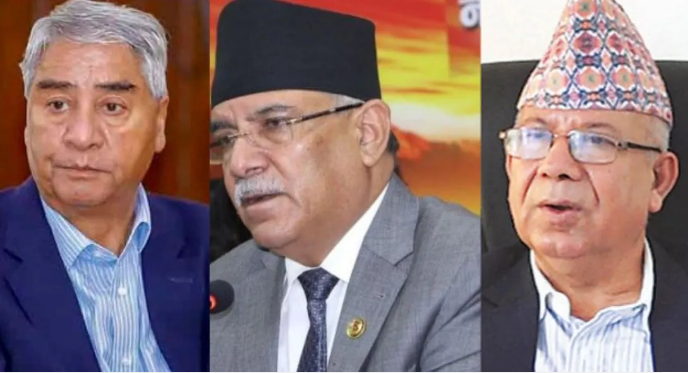Within two months of its inception prior to the presidential election, Nepal’s political coalition underwent a transformation.
Rastriya Prajatantra Party, Rastriya Swatantra Party, and the Communist Party of Nepal-Unified Marxist Leninist (CPN-UML) were compelled to leave after the Maoist Center allied with the Nepali Congress and Unified Socialist. Prior to the upcoming presidential election, which is scheduled for next month, the Himalayan Nation decided to alter its political direction following the general election in November of last year.
Eight political parties, including the Nepali Congress, Maoist Centre, and Unified Socialist, will establish a new alliance after a last round of negotiations at the Baluwatar mansion of the Nepalese prime minister that ended late on Friday night.”Prime Minister Pushpa Kamal Dahal ‘Prachanda’ called the meeting of the eight parties including those out of the government. The only agenda discussed in the meeting was President’s election,” Prakash Jwala, a leader of the CPN-Unified Socialist said.
In the meeting, Nepal PM Dahal proposed to support the Nepali Congress nominee for the President for being the largest political party in the federal parliament.
“From today (Friday) onwards, a new political journey begins. Let’s take it ahead; let’s be united for the country’s prosperity, national independence, sovereignty and people’s livelihood. We can go together on power sharing as well,” Jwala quoted PM Dahal as he briefed about the meeting.
Eight parties, including Nepali Congress, Maoist Centre, CPN (Unified Socialist), Janata Samajbadi Party (JSP), Loktantrik Samajbadi Party, Janamat Party, Rashtriya Janamorcha and Nagarik Unmukti Party attended the meeting on Friday.
The Election Commission has scheduled the nomination of the President for 25 February and the election on 9 March.
The meeting of the top leaders of NC, Maoist Centre, JSP and CPN (US) on Friday morning had agreed to restore the previous alliance- the alliance before that of the November 20 election.
Although the CPN UML had been insisting that the UML nominee would be the President as per the agreement made on 25 December, Nepal’s PM and Maoist Centre Chairman Dahal was forging national consensus in the election of the President.
The weightage of the vote cast each by members of the Nepal Federal Parliament and Provincial assemblies will be counted on the basis of the electoral college. A vote cast by a member of the Nepal federal parliament, including both upper and lower houses, will be considered to have a weight of 79 votes whereas a vote cast by a member of a provincial assembly will be considered to have a weight of 48 votes.
It means, there will be a total of 52,786 electoral votes in the Electoral College. The weight of the vote has been decided according to the ratio of lawmakers to the total population of the country as calculated in the 2011 census.
Political alliance changes in Nepal ahead of Presidential polls
- Advertisement -

